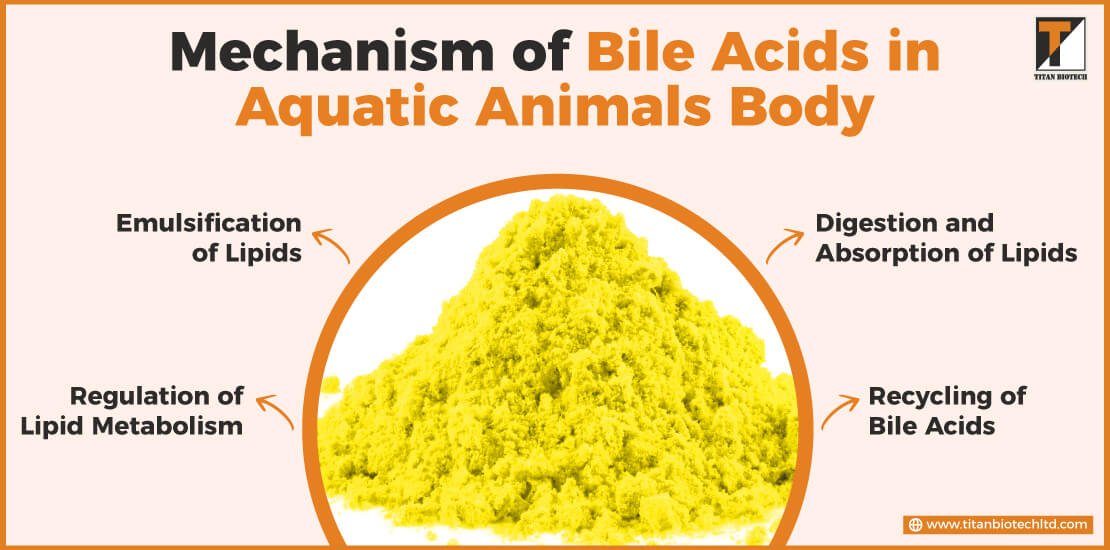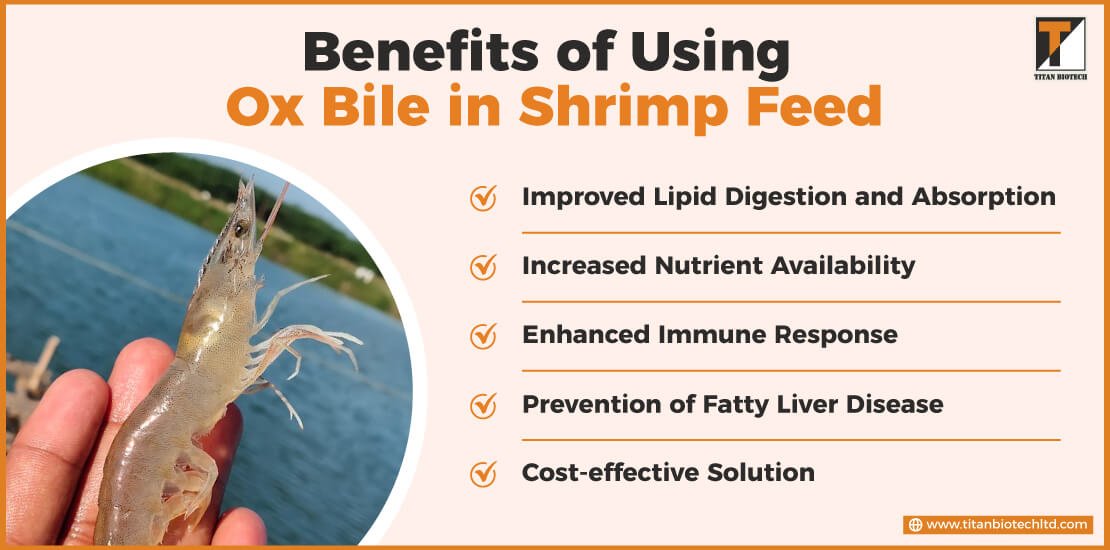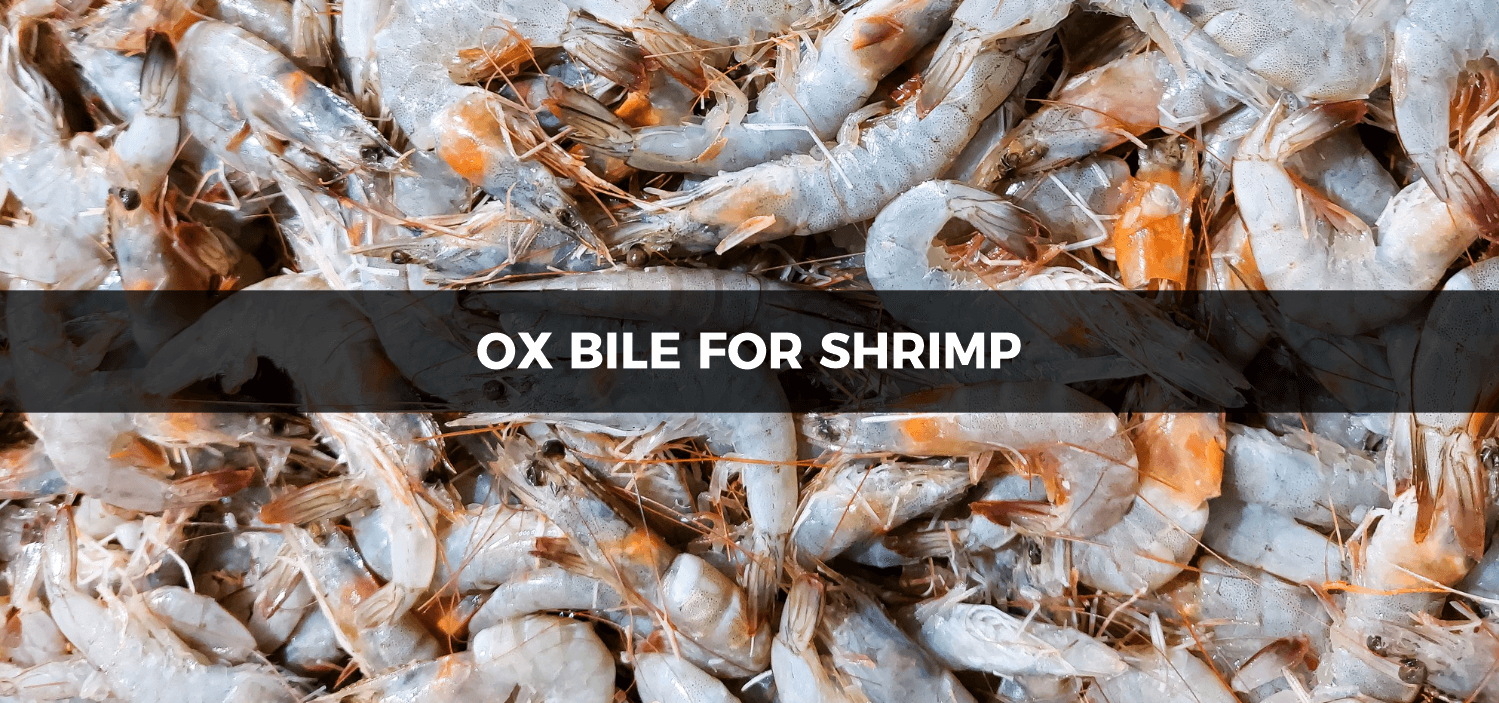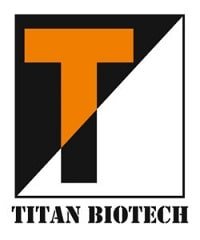Table of Content
- Introduction
- Mechanism of Bile Acids in Aquatic Animals Body
- Benefits of Using Ox Bile in Shrimp Feed
- Using Ox Bile Safely and Effectively
- Why Choose Titan Biotech’s Oxibil – Ox Bile Extract for Your Shrimp Feed?
- Conclusion
Introduction
Ox bile is a digestive supplement used for centuries to help support digestive function and improve the body’s ability to break down and absorb fats. Shrimp, a high-fat food, can sometimes be difficult for some people to digest.
It is important to note that there are no standardized guidelines for using ox bile in shrimp feed. As a result, some people may choose to take ox bile when consuming shrimp to aid in the digestion process.
Bile acid for shrimp is a vital feed additive in their bile acid synthesis. It has been widely used in aquaculture due to its beneficial effects on shrimp growth, survival, immunity against bacterial infection, and overall health. Bile acids are endogenous substances synthesized by the Hepatopancreas in shrimp to facilitate the digestion and absorption of dietary fats. In shrimp aquaculture, bile acids are added to their diet as in the early growing stage of shrimp their hepatopancreas is not fully grown to produce sufficient bile acid to improve the utilization of high-fat feed ingredients and enhance shrimp growth and survival.
Mechanism of Bile Acids in Aquatic Animals Body

Bile acids play a vital role in the digestive process of aquatic animals by aiding in the absorption and metabolism of fats and fat-soluble vitamins. Here is an overview of the mechanism of bile acids in aquatic animals’ bodies:
-
Emulsification of Lipids
Bile acids are released into the small intestine, mixing with dietary lipids and forming micelles. The bile acids emulsify the lipids, breaking them down into smaller droplets, which increases the surface area for enzymatic digestion.
-
Digestion and Absorption of Lipids
The emulsified lipids are then digested by lipases into free fatty acids and monoglycerides, which can be absorbed into the intestinal epithelium. The bile acids also help to transport the digested lipids across the intestinal membrane and into the bloodstream.
-
Regulation of Lipid Metabolism
Bile acids play a crucial role in regulating lipid metabolism in the body. One of how they do this is by activating specific signaling pathways, such as the farnesoid X receptor (FXR) and the Takeda G protein-coupled receptor 5 (TGR5). These pathways regulate lipid metabolism, including the body’s synthesis, transport, and breakdown of fats. Through their interactions with FXR and TGR5, bile acids can influence the expression of genes involved in lipid metabolism, thereby helping to maintain lipid homeostasis in the body.
-
Recycling of Bile Acids
After aiding in the digestion and absorption of lipids, the bile acids are reabsorbed into the bloodstream and transported back to the liver. In the liver, the bile acids are conjugated with amino acids and secreted into the bile for reuse in the digestion and absorption of dietary lipids.
Overall, bile acids play a critical role in the digestion and metabolism of lipids in aquatic animals. By emulsifying and transporting lipids, bile acids help ensure that aquatic animals can efficiently absorb and utilize the nutrients they need for growth and survival.
Benefits of Using Ox Bile in Shrimp Feed

Ox bile can provide a source of bile acids in shrimp. Here are some potential benefits of feeding bile acid:
-
Improved Lipid Digestion and Absorption
Bile acids in ox bile can aid in emulsifying and breaking down dietary lipids, making them more accessible for absorption by the shrimp’s digestive system. This can lead to improved feed utilization, growth, and survival rates.
-
Increased Nutrient Availability
Bile acids can increase the absorption of certain nutrients, such as fat-soluble vitamins and minerals, which can improve the overall nutritional value of the shrimp feed.
-
Enhanced Immune Response
Bile acids have been shown to improve the immune response in shrimp by increasing the production of antimicrobial peptides, which can help protect against pathogenic bacteria.
-
Prevention of Fatty Liver Disease
This disease is marked by the accumulation of fats within the liver. Fatty liver disease can be prevented by utilizing bile acids, which can help hinder the buildup of lipids in the liver. This can lead to improved liver health and overall shrimp health.
-
Cost-effective Solution
Supplementing shrimp feed with ox bile can be a cost-effective way to provide a source of bile acids as it ultimately saves the economy by promoting the survival rate, rather than relying on more expensive alternatives.
It is important to note that the optimal level of ox bile acid feed may vary depending on the specific needs of the shrimp and the composition of the feed. Therefore, it is recommended to consult a veterinarian or a shrimp nutritionist to determine the appropriate amount of ox bile to include in the feed.
Using Ox Bile Safely and Effectively
When using ox bile in shrimp feed, it is essential to do so safely and effectively to ensure that the feed is nutritious and does not pose any health risks to the shrimp. Here are some tips for using ox bile safely and effectively in shrimp feed:
- Quality Assurance: It is important to make sure that the ox bile extract you are purchasing is of high quality and has been manufactured in a safe and hygienic manner. Check that the supplier has appropriate certifications and follows good manufacturing practices.
- Purity and Potency: Ensure that the ox bile extract is pure and potent, and contains the necessary active ingredients. Request for the certificate of analysis (COA) for the product and check for the percentage of bile acid content.
- Packaging and Storage: The ox bile extract should be packaged and stored appropriately to maintain its quality and efficacy. It is important to check that the supplier uses appropriate packaging materials and follows proper storage guidelines.
Why Choose Titan Biotech’s OXIBIL™ – Ox Bile Extract for Your Shrimp Feed?
Titan Biotech is a leading supplier of high-quality ox bile extract, and there are several reasons why you might choose our OXIBIL™ – ox bile extracts for your shrimp feed:
- Quality: Titan Biotech’s Oxibil is manufactured using high-quality raw materials and is processed in a modern facility under strict quality control measures. This ensures that the final product is of the highest quality, purity, and potency.
- Consistency: our ox bile extract is standardized to contain a consistent amount of bile acids, which is important for ensuring that your aquatic animal products are of consistent quality.
- Safe and hygienic: We follow good manufacturing practices and have appropriate certifications, which ensure that our ox bile extract is manufactured in a safe and hygienic manner.
- Cost-effective: Oxibil is competitively priced, making it an affordable option for those who want high-quality aquatic animal products.
- Customer service: We have a dedicated team that can help you with any questions or concerns you may have about their product, ensuring a smooth purchasing experience.
- Does what it claims: Oxibil gives the desired results as it claims as this product is concentrated without any diluent and originated from a safe source (Bovine).
Overall, if you’re looking for a reliable and high-quality source of ox bile extract for your shrimp feed, Titan Biotech is a great choice.
Conclusion
Titan Biotech’s ox bile products can provide significant benefits to shrimp feed formulations by enhancing digestion and nutrient absorption in the shrimp. Ox bile is a natural source of bile acids that can help break down lipids and increase the availability of nutrients for the shrimp, leading to improved growth and overall health.
The manufacturing process for Titan Biotech’s ox bile products is rigorous and subject to strict quality control measures and certifications to ensure the purity and safety of the product. By working with a reputable supplier of ox bile products, such as Titan Biotech, aquaculture farmers can improve the nutritional value of their shrimps (crop) and support the growth and development of their shrimp populations with the increase in the economy.

